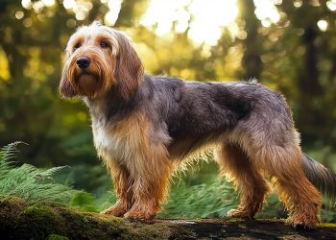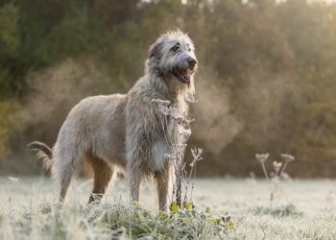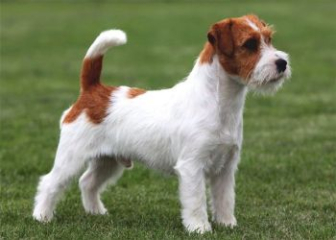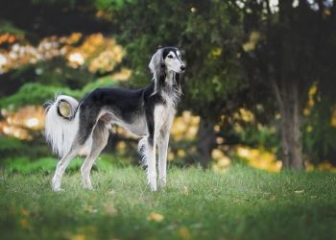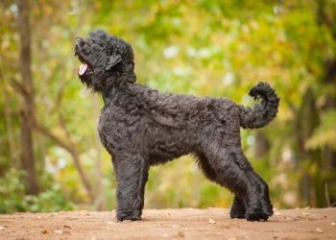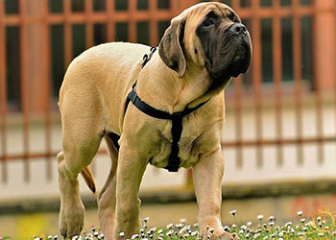Shih Tzu – An Adorable Companion Dog Breed
Blog | by
The Shih Tzu, a small companion dog breed from Tibet, China, is known for its friendly nature and often referred to as the "little lion" of Chinese royalty.
The Shih Tzu, also known as Thạch Sư Khuyển (石獅犬), originates from Tibet, China. The name "Shih Tzu" translates to "little lion" in Chinese, reflecting their lion-like appearance and silky coats. These dogs are gentle and friendly, have a lifespan of 10–16 years, and were historically treasured pets of ancient Chinese emperors and empresses.
In today's article, let's explore all the details about the charming Shih Tzu Dog breed!
Where does the Shih Tzu originate from?
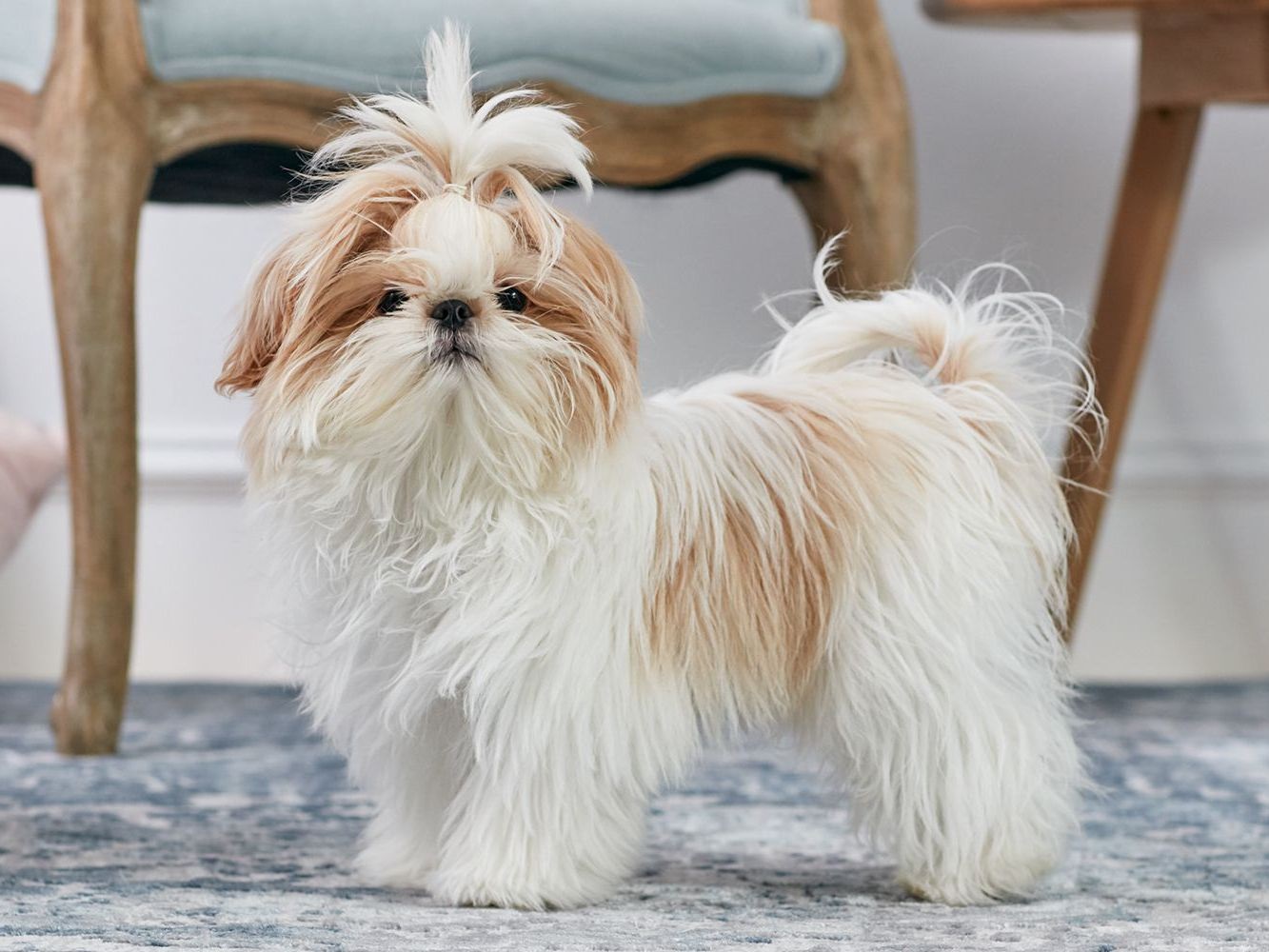
The Shih Tzu, also known as Thạch Sư Khuyển.
The Shih Tzu dog breed originated from Tibet, China. Despite its name meaning "little lion," this dog has an extremely friendly and affectionate personality.
History and Development of the Shih Tzu:
-
The Shih Tzu breed is believed to be closely related to the Lhasa Apso, an ancient Tibetan dog breed.
-
Around the 7th century, Tibetan monks bred and gifted these dogs to Chinese royalty.
-
In China, Shih Tzus were further bred with Pekingese dogs, resulting in their present-day small size and luxurious long coat.
-
During the reign of Empress Dowager Cixi (1835–1908), Shih Tzus were exclusively kept within the imperial palace and rarely appeared outside.
-
In 1928, the wife of a British general stationed in Northern China brought two Shih Tzus to England, helping introduce the breed to Britain and Western countries.
-
Today, thanks to their charming appearance and friendly nature, Shih Tzus are popular worldwide, especially in Europe and the United States.
Classification of the Shih Tzu Breed

Shih Tzus are divided into two main types: Purebred and Mixed-breed Shih Tzus.
Based on their origin, Shih Tzus are categorized into two groups: purebred and mixed-breed (hybrid).
Purebred Shih Tzu
Purebred Shih Tzus originate from China and are recognized by international kennel organizations such as AKC, FCI, and UKC. They possess standard size, long silky coats, and balanced appearances.
Mixed-breed Shih Tzu
Today, Shih Tzus are often crossbred with other small dog breeds to create adorable and intelligent hybrids, such as:
-
Shih Tzu x Poodle (Shih Poo): Curly coat, intelligent like Poodles, friendly, minimal shedding.
-
Shih Tzu x Pekingese (Shinese): Shorter nose than purebred Shih Tzu, thick coat, round face.
-
Shih Tzu x Chihuahua (ShiChi): Small, active, with Chihuahua-like ears.
-
Shih Tzu x Maltese (Malshi): Very long, silky coat, adorable appearance.
-
Shih Tzu x Japanese Chin: Soft silky coat, petite size.
Physical Characteristics of Purebred Shih Tzus

Physical Characteristics of Purebred Shih Tzus
The Shih Tzu, also known as Thạch Sư Khuyển, is a small-sized breed classified within the toy group (dogs under 25 cm tall). They have an adorable appearance with a long, silky coat and a charming round face. Let's explore the detailed characteristics of purebred Shih Tzus:
-
Height: 20–25 cm
-
Weight: 3–8 kg
-
Head: Round and proportionate
-
Eyes: Large, round, dark (black or deep brown), always appearing bright and sparkling
-
Nose: Short, slightly tilted upwards but not excessively flat, black or brown depending on coat color
-
Muzzle: Short but not as flat as the Pekingese
-
Jaw: Slightly undershot bite (lower jaw protrudes slightly)
-
Ears: Long, hanging down on either side of the face, covered with long hair
-
Coat: Long, thick, straight or slightly wavy, smooth, silky, double-layered
-
Coat Colors: Commonly white-gold, white-brown, black-white, rare solid colors include pure black, pure white, or tri-colored
-
Tail: Long, heavily coated, curled over the back
-
Legs: Short and sturdy
-
Gait: Confident, proud, gentle, and graceful
Temperament of the Shih Tzu
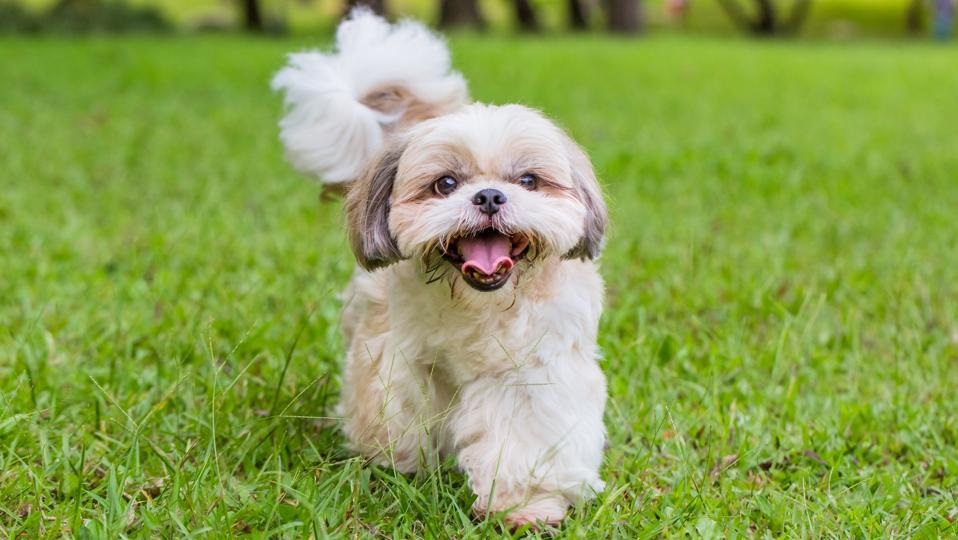
The Shih Tzu is Friendly and Sociable
Although "Shih Tzu" translates to "little lion," these dogs are gentle, friendly, and loyal by nature. Let’s explore some unique traits of this breed to determine if a Shih Tzu is right for you!
Friendly, sociable, and affectionate
Shih Tzus are extremely friendly and easily form close bonds with everyone in the family. They love cuddles, affection, and prefer staying close to their owners. They also get along very well with other pets, including cats and other dogs.
Gentle and amiable
Shih Tzus lack aggression, rarely behaving aggressively toward strangers or other pets. Their gentle nature makes them unsuitable as guard dogs, but they excel as beloved companions and family pets.
Cheerful yet moderately active
While Shih Tzus are playful, they aren’t as energetic as breeds like Poodles or Chihuahuas. They enjoy gentle play rather than intense running, and typically prefer leisurely walks over vigorous activity.
Smart but occasionally stubborn
Shih Tzus are intelligent dogs, but their royal heritage can sometimes make them a bit stubborn. However, with consistent and gentle training from a young age, they become obedient companions.
Quiet, calm, and rarely noisy
Unlike many small breeds, Shih Tzus rarely bark unnecessarily. They may bark briefly when strangers approach, but they generally prefer a quiet and peaceful environment.
Proper Care for the Shih Tzu
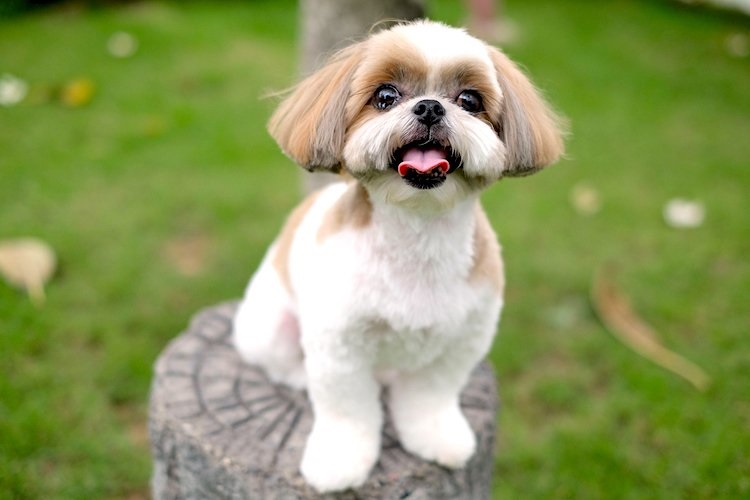
A Shih Tzu dog with neatly groomed fur.
Below, we've shared detailed information on raising a Shih Tzu dog—from nutrition and grooming to exercise, training, and healthcare. If you plan on owning one, keep reading to learn more!
Nutrition Guidelines for Shih Tzus
Shih Tzus have sensitive digestive systems and are prone to digestive problems, so a balanced and nutritious diet is essential. Here's a suitable diet plan:
Recommended Foods for Shih Tzus:
-
Protein: Beef, chicken, pork, fish, eggs.
-
Vegetables: Carrots, cabbage, pumpkin—sources of fiber and vitamins.
-
Carbohydrates: Whole grains, rice, sweet potatoes.
-
Dairy: Plain yogurt, cheese.
-
Premium dry dog food: Specifically formulated for small breeds.
Foods to Avoid:
-
Small, sharp bones (risk of choking or injury).
-
Grapes, onions (toxic to dogs).
-
Spicy, salty, sweet, or greasy food (can harm liver, kidneys, and digestion).
Feeding Schedule by Age:
-
2–3 months old: Feed 4 times/day; soft food, pureed or blended.
-
4–6 months old: Feed 3 times/day; introduce solid foods, including dry kibble.
-
6+ months old: Feed 2 times/day; balanced diet with all necessary nutrients.
Grooming and Hygiene Care
Shih Tzus have long, dense, and silky coats, requiring attentive grooming:
-
Brush their coat daily using specialized combs to avoid tangles and remove loose hair.
-
Bathe 1–2 times per week with dog-specific shampoo; thoroughly dry afterward.
-
Groom and trim fur every 1–2 months to maintain neatness.
-
Regularly clean ears, wipe eye discharge, and clip nails.
Exercise and Training for Shih Tzus
Shih Tzus are moderately active and require regular, gentle physical activity:
-
Short walks (20–30 minutes/day).
-
Light playtime (small ball games, chew toys).
-
Teach basic commands early to instill good habits.
-
Use positive reinforcement; avoid harsh punishment as Shih Tzus are sensitive.
Healthcare and Vaccinations
Regular vet visits, vaccinations, and preventative care will help your Shih Tzu stay healthy:
-
Follow a veterinarian-approved vaccination schedule (including 5-in-1, 7-in-1, and rabies vaccines).
-
Deworming treatments 2–3 times/year for digestive health.
-
Health check-ups twice per year.
Ideal Living Environment
Shih Tzus weigh under 8 kg, rarely bark excessively, and prefer quiet environments, making them ideal for small apartments or houses. Provide a warm sleeping area with soft bedding for their comfort.
Common Health Issues in Shih Tzus
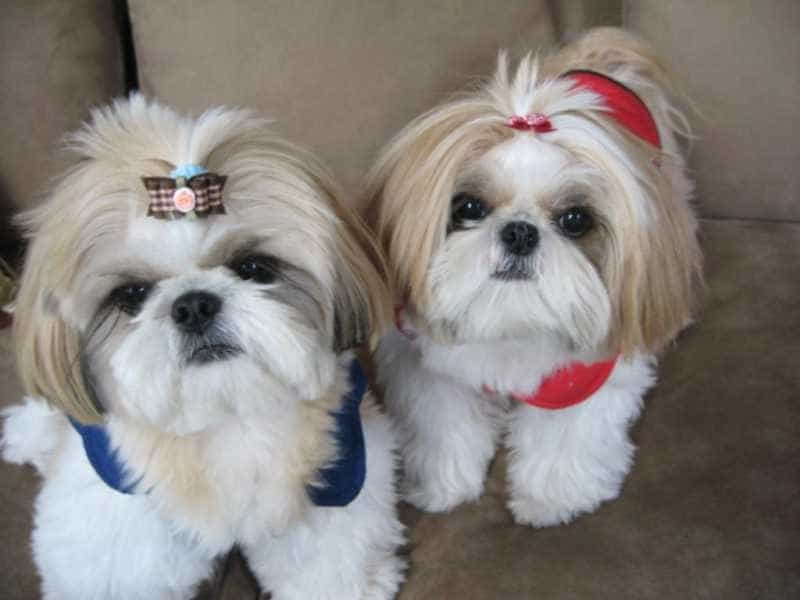
Common Health Issues in Shih Tzus
Shih Tzus are small dogs known for their longevity, often living up to 16 years. However, they commonly face certain health issues. Let’s explore some common illnesses in Shih Tzus and learn how to recognize and prevent them.
Eye Problems
Due to their large, protruding eyes with shallow sockets, Shih Tzus frequently experience eye conditions such as:
-
Corneal inflammation (keratitis): Red eyes, excessive tearing.
-
Dry eye: Lack of tears leading to dryness and inflammation.
-
Cataracts: Cloudy vision that can eventually cause blindness.
Prevention:
Regularly clean eyes with a soft, damp cloth, trim hair around the eyes, and supplement their diet with vitamin A-rich foods.
Respiratory Issues
Shih Tzus belong to the Brachycephalic group (short muzzle and nose), making them prone to breathing difficulties, such as:
-
Brachycephalic Airway Syndrome: Difficulty breathing, wheezing, loud snoring.
-
Bronchitis: Often caused by exposure to cold environments.
Prevention:
Avoid intense physical activities, maintain a comfortable environment, and immediately consult a veterinarian if severe breathing difficulties arise.
Skin Conditions
Shih Tzus have thick, double-layered coats, making them susceptible to skin diseases if not groomed properly:
-
Allergic dermatitis: Red, itchy skin, patchy hair loss.
-
Fungal infections or flea dermatitis: Red bumps, itching.
-
Sebaceous adenitis: Dry, scaly skin, heavy shedding.
Prevention:
Keep your dog clean, thoroughly dry their coat after bathing, and regularly inspect their skin for any unusual signs.
Joint and Bone Disorders
Shih Tzus' small stature and delicate bones increase the risk of joint issues, including:
-
Patellar Luxation: Limping, difficulty walking due to kneecap dislocation.
-
Osteoarthritis and osteoporosis: Common in older Shih Tzus.
Prevention:
Avoid letting your Shih Tzu jump from high surfaces, and provide dietary calcium (found in eggs, milk, and bone broth) to support bone strength.
Dental Problems
Due to their short muzzle and crowded teeth, Shih Tzus commonly experience dental issues:
-
Symptoms: Bad breath, swollen gums, tooth pain.
-
Prevention: Regular teeth brushing (2–3 times weekly), provide dental chew toys, and schedule routine dental check-ups.
Price Guide & Buying Tips for Shih Tzus in Vietnam
Shih Tzus are popular in Vietnam due to their adorable appearance and friendly personality. Before purchasing, familiarize yourself with pricing and key tips for choosing the right Shih Tzu.
Shih Tzu Price Guide (Vietnam)
| Origin | Approximate Price |
|---|---|
| Locally bred Shih Tzus | 5–7 million VND |
| Imported from Thailand | 8–10 million VND |
| Mixed breeds (Pekingese, Japanese Chin, Chihuahua, etc.) | Lower, varies by appearance |
Tips for Buying Shih Tzus:
-
Buy from reputable breeders or trusted pet stores to ensure good pedigree, health, and reasonable pricing.
-
Thoroughly inspect the dog’s coat, eyes, and nose to ensure purity and overall health.
-
Carefully review pedigree documents and vaccination records.
-
Avoid buying low-priced Shih Tzus online as they may have unclear origins or hidden health issues.
Collection of Beautiful and Adorable Shih Tzu Images
If you love Shih Tzus and wish to enjoy more beautiful photos, browse our delightful image gallery of adorable Shih Tzus below!

Super cute Shih Tzu puppies.
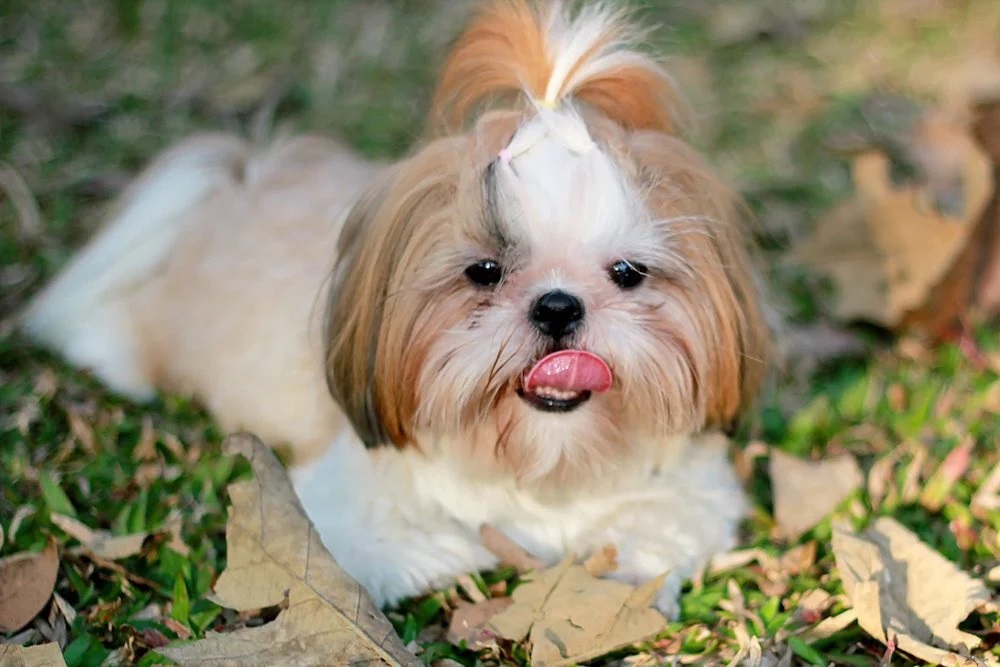
A Shih Tzu with large, round, sparkling eyes.
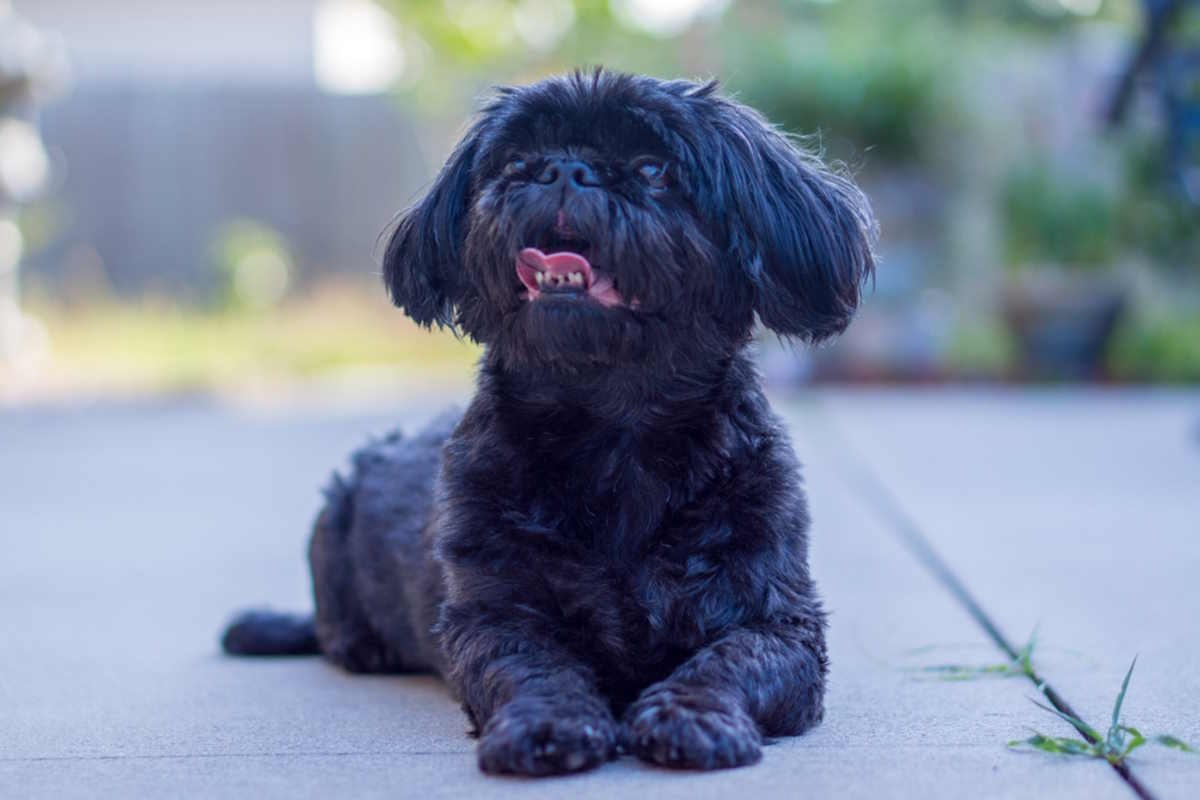
Pure black Shih Tzus are very rare.

A Shih Tzu featured as a "spokesmodel" for Pedigree dog food.
Through this article on giongcho.org, we've provided comprehensive information about the Shih Tzu—a small, lovable, friendly companion breed originating from Tibet, China. If you're looking for an adorable little dog to keep you company, a Shih Tzu would surely be a wonderful choice.
Goodbye, and see you again soon in our next articles on the Blog to discover even more fascinating dog breeds!

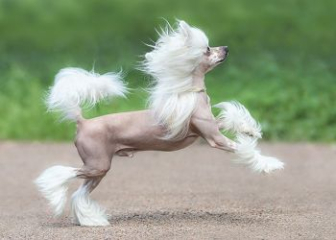
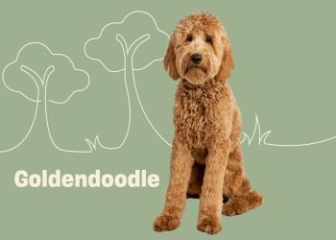
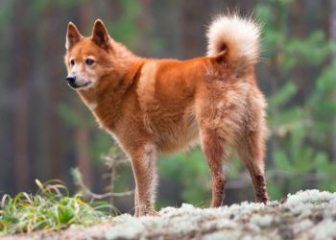

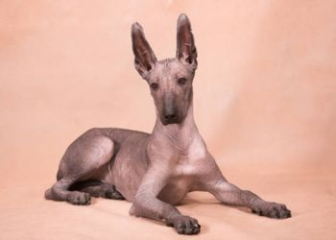



_350x250.jpg)




